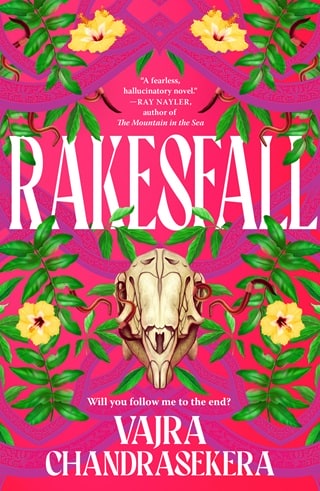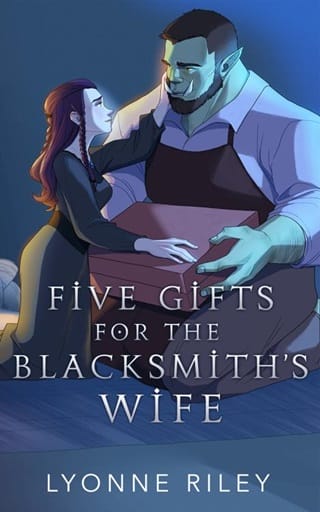Chapter 21 Vidyujjihva
A leveret is born ready to run. A leveret is born with its eyes open. This is what separates the young hare from the young rabbit, the hairless kit with eyes shut tight. The black-naped wild hare of Lanka, the ha-ha-hari-hawa, was wrought Lepus nigricollis singhala after the sinners of that isle by one Robert Charles Wroughton. Lepus nigricollis was invented by Frédéric Cuvier, brother of the more famous Georges, the long-tongued devil of the age of racialization, of speciation.
Cuvier and the Devil, an Apocryphal Anecdote
It is said about Georges Cuvier that a student once attempted to prank him by dressing up as a devil, with horns and hooves, saying, "Cuvier, Cuvier, I am going to eat you!" To which Cuvier only woke up long enough to say, "Horns and hooves; you're a herbivore. You can't eat me."
Georges does not ask himself why the Christian devil has hooves and horns, which is of course that they are satyrical. The story isn't funny because of Cuvier's deductive skills; it's funny because Cuvier is seen to commit a gross category error—which, you might say, is the defining, distinctive trait of a cuvier in the wild: a pot not for melting but fermenting, breaking things down, breaking things apart in the absence of oxygen. Like his brother, Georges invented many species, such as the human in white, black, and yellow varietals—where did we fit in? We argued about this in middle school, when it seemed clear to us from the racial caricatures in the grade eight science textbook that we were not Ethiopian or Mongolian, but we were definitely not Caucasian either, and this seemed to leave us in a de-human's-land, an empty realm. I came home and asked my mother, who said oh that's not how it works, that's not how it works at all, and for a moment there seemed to be a breaking of the walls, a desundering of a single great undifferentiated ocean, until she said, we're Aryan, obviously, that's why we're at war with the Dravidians, and the walls went crashing up again for the waves to shatter on.
The Aryan invasion, the pale north and the dark south, the Yoke and the Rake, the war of Lanka, no, not that one, the other war of Lanka, or sure okay maybe whynotboth. For every Sita a Surpanakha, a.k.a. Chandranakha, long in the nail, long in the tooth, short in the nose. What is left on our faces to tap knowingly? Perhaps, like the brothers Cuvier might have done, we can tug at the skin under our eye and say, mon oeil. To all this a great disbelieving, a refusal, a neti neti that leaves us neti beri, impoverished and alone.
The Lamb takes a deep breath, but cannot unbreathe it; it catches in her vents, in her throat, in her chest. She claws at her chest, hears distant voices. The Clave, panicked by panic? No, a different key to a different door. The Clave has found the lookups for the reference codes given by the Hombre, the explanation for her visa rejection. "You're haunted," the Clave says. "It says you brought strange hauntings into the world when I woke you up."
The Lamb is dizzy. She puts both her hands to her head. "I woke myself up," she retorts, though the clean snap is complicated by a wheezing and a coughing and a great many other biological factors from which she feels increasingly detached. Her memories are dizzying, like a river in furious flow. All she can do is try not to drown.
Once upon a regime of poetics markedly different from hers or yours or mine, on an island called the strange and wondrous island, which held a city called the wondering and estranging city, whose air was always warm but not too hot at noon, always cool but not too chilly at night, whose great stone towers wore clouds and songs like scarves, there was a woman of the Rake who wore her nails long and painted; she was the first artist of the nail. Her name was Chandranakha, for the crescent curve of her nails, or perhaps because she liked to paint them with the faces of the moon.
The strange city was full of music and sculpture and painting and performance and recriminations and fallings-out and drama and scandal, because the Rake were at that time in the process of inventing all the arts. There were so many, so manymany, that there was always room for more, so each of them would create new forms and vie to become their first masters, or for those who came a smidgen later, their first iconoclasts. The Rake were protectors of time, and for them art was the way to organize time: to guide and direct it; to channel its wild fecundity into a linear flow that did not burst its banks and spill into chaos.
Chandranakha had three brothers, the eldest of whom was called the Ravening. His art of choice was political ambition. They did not get along: the Ravening believed only in grand forms, in high arts, and in truth; Chandranakha believed in small forms, in low arts, and in beauty. Each considered the other a hack. By the very nature of their vocations, their lives diverged more and more. The Ravening invented thrones and sat upon the first one; he was then called the Ravenous King, always looking to command greater heights. The other two bros were absorbed into the Ravenous King's project, willynilly; the elder middlebro was called Kumbakanna, ears-like-pots, and he had perfected the art of sleepwalking through life, going along to get along, the power nap behind the seat of power; the younger middlebro was called Vibhishana, because from birth he was fucking awful. They, too, began to spend less time with Chandranakha. Later, much later, like, not-in-this-book kind of later, one of them will invent the useless heroic death, and the other will invent high treason and become a god. But that's neither here nor there. Their middlebro destiny is not to help, only to be of use.
Of their whole family, Chandranakha alone felt no attraction to ambition whatsoever. She was content to work on her own art, on her own body; she would not so much as open a nail salon. Nor would she accept invitations to be interviewed on morning talk shows as a member of the royal family, as Vibhishana frequently did. She loved all the small arts, all the arts of the body; she sought out the company of tattooists and body-painters, of dancers in ten thousand different forms, of thumb-wrestlers and shadow puppeteers, of experimental jewellers and avant-garde dress designers, of kinksters and perverts and other artists of love. Around the same time that her brother ascended to a throne, Chandranakha met a smooth-talking man who had, he said, invented cunnilingus, and for this was called Vidyujjihva, the lightning-tongued, and would she like to try it? It was, she decided, pretty great.
Vidyujjihva was a mouthy man, a mobile and expressive mouth, a mouthful of trouble. In bed it was lightning and love; at the table, it was fast wit and puns (he had once made love to their inventor, he said, and she had cursedblessed him with their importunacy); in the bitter dark, it was invective, a mouth full of knives. Still, she loved him. Someone in the city had recently invented the art of marriage, and it was all the rage. Even her eldest brother had said—not to her, of course, they rarely spoke now, but his every utterance became law, became fashion, became news, so she was always hearing about what he thought, what he wanted, and so she, along with the rest of the city and all the Rake, learned that the Ravenous King, too, sought a marriage—the elevation of mere love, he said, to politics, to alliance, to lineage. His art was becoming more and more complex. Some said, though they did not say it too loudly, that his art was subsuming all other arts, hungry like its master.
On hearing about her brother's marital ambitions, Chandranakha finally found a small seed of ambition in herself: she desired to marry first and to live better, while her royal brother mired himself in intrigue and plot, so that he would look and look again at her life and be, she thought, consumed with envy of its beauty, its clarity, its simplicity, until he would finally have to admit that he was and had always been wrong about everything. So she married Vidyujjihva and they lived well, for a time.
But this invention, marriage, was more complex than she had understood; it was a game with many more rules than were immediately evident: rules about alliance and lineage, rules about complicity and inheritance. It stank, uncomfortably, of her brothers' world. From the onset of the wedding, which was officiated by the inventor of the art themself, the marriage had undercurrents and strange tides that Chandranakha only partly understood. For instance, they had begun with a guest list of only three names, themselves and the officiant, but then there had to be witnesses, then families, then friends. First among the special guests who could not be uninvited without insult, naturally, were the brothers of the bride, headed inevitably by the Ravenous King. The wedding forced a claustrophobic closeness between Chandranakha and her family; their past polite estrangement became harder to recapture. Vidyujjihva was to be the brother-in-law of the king, a position that came with political influence. Her brothers, in turn, demanded the right to get to know her husband, this new member of their family—the Ravenous King interpreted her marriage as a concession, of sorts, to politicking. He began to invite them regularly to his palace, and be offended if they made excuses; he would visit them at home, at first by appointment and then sometimes unannounced, and if she complained he would be offended again, saying, can't a brother visit his beloved sister and brother-in-law, can't family be a respite from politics? She would be diverted into asking why he needed respite from his own art, and they would get entangled in debate over dinner, and Vidyujjihva was always game for a good argument. He had many opinions, and could summon up more out of nowhere, even on subjects he knew nothing of. Sometimes Chandranakha would throw up her hands and leave them arguing at the table.
Vidyujjihva took to politics naturally. In hindsight he was born for it, with his smooth and smiling mouth. Chandranakha mourned when Vidyujjihva began to take part in her brothers' councils, as a diplomat, a problem-solver, a negotiator, a peacemaker, a sorcerer. He would come home and tell her about his day, and in this way she learned more about politics than she ever wanted to. The burning issue of the day was geopolitical, the great tension with the ancient superpower to the north called the Yoke. Every day, Vidyujjihva told her, the possibility of invasion seemed to heighten.
"This war is inevitable," Vidyujjihva judged. "It is the inexorable outcome of how we have been constituted and organized as peoples, as a binary in opposition. We are artists and they are priests; we both love time and its ordering, but in such different ways. It can't go on like this. Sooner or later there will be some provocation, probably a grand and intentional provocation, and there will be a war."
"What happens next?" Chandranakha asked.
"I don't know," Vidyujjihva said, and she laughed.
"Oh," she said, running a nail gently over his face; it left a thin white line across his dark cheek. His skin was getting drier, after so much time in smoky rooms. "I thought perhaps you had invented a new art of prophecy."
They seduced each other toward the bedroom, slowly, a thing they did less and less of since their marriage; lovemaking had a nostalgic air now, as if they were ironically referencing those heady early days. When Vidyujjihva tried to bury himself between her legs, she shushed him, pulled him up. She wanted to see his face near her own, to kiss his clever mouth, to suck on his lightning tongue, to feel his breath on her cheek. She wanted him to feel close. It felt urgent. She just knew something bad was coming at them, drifting down in time.
Later, Chandranakha thinks it must have been his mouth that got him in trouble. He must have said something unforgivable, made a joke too far, or maybe one of those secret midnight moods had come upon him in daylight and bitterness had spilled out of his mouth in the presence of her brothers. Perhaps his worries over the impending war had driven him to make some mistake in his glibness, his suasion, the sorcery of his electric tongue. She never finds out; she never knows exactly what, exactly why. Her other brothers say they don't know either, they weren't there when it happened. And the Ravenous King only says that it had to be done, he had no choice, it was necessary, it became necessary, to have Vidyujjihva executed. He does not elaborate, no matter how much she pleads for answers. She does not even know how it happened: Did her brother leap across the table to throttle her husband in the council chamber? Or did he summon guards and have Vidyujjihva taken away to a noose or an axe or perhaps a high place for a forced and ritual leap? She asks the moon, who loves her, but the moon does not know.
Chandranakha maintains relative composure in front of the Ravenous King when he tells her this news. She weeps, she collapses, and she asks permission to leave and mourn, but that's all, it's a nothing; he grants this nothing easily. She does not remember when he assumed those powers, when it became necessary for the Rake to ask permission to grieve. But death, too, was still a relatively new art among them.
There are a hundred epics about the war that came next. It does not need her retelling, and anyway she was not there for most of it. She played only a small part in setting it loose, in creating the provocation that Vidyujjihva had prophesied. The story of how the Rake fell is simple, at its grieving heart, and it doesn't even involve any of the epic's major players or cosmic forces. Causality is a small art, a homely thing, an art of the body. Chandranakha leaves the city and goes into the jungle, and alone under the full moon she digs her beautiful nails into her skin and tears it away, strip by bloody strip. She flays herself, howling. She looks redly at the world and knows it complicit; that to be bereaved is to be reaved, and that the name of the reaver is her ravening brother but also this engine of pain he had made, the throne and its necessities and lineages, his foul and monstrous art. She goes north, the first witch red and skinless, to find some sheep of the Yoke to provoke, to start a war that would end the ravening, that would end the Rake entirely, the first thread of a red web to bring surcease to the agony of this world.
 Fullepub
Fullepub 



